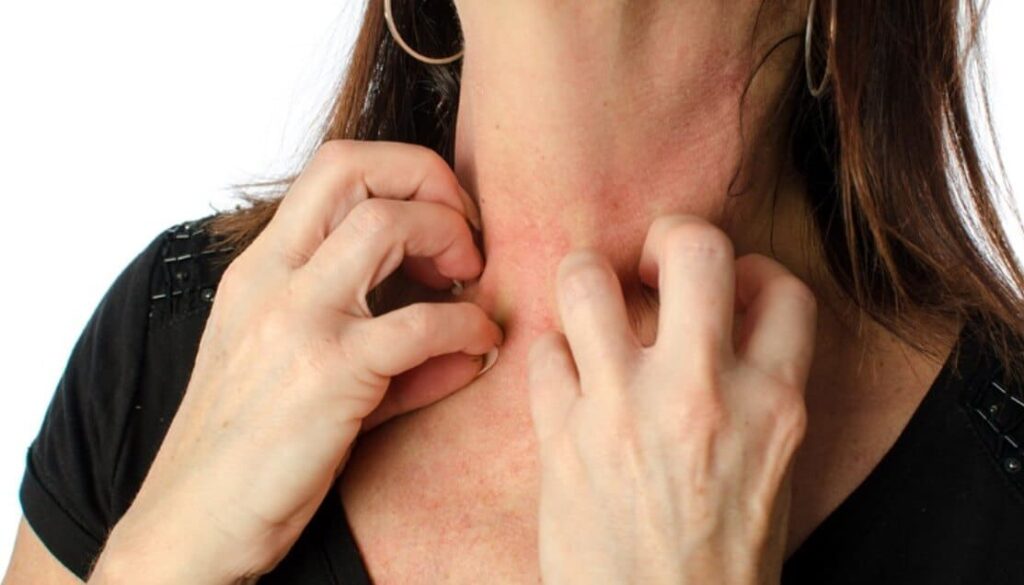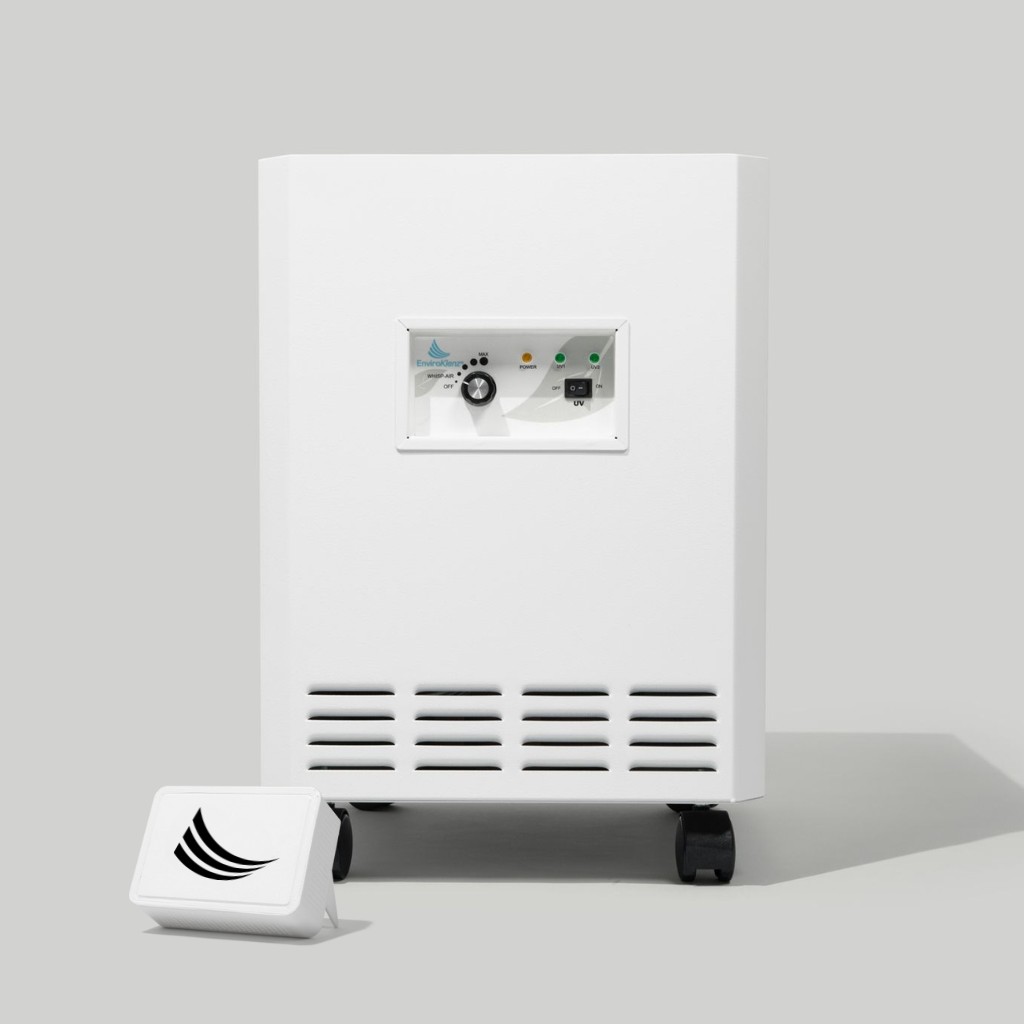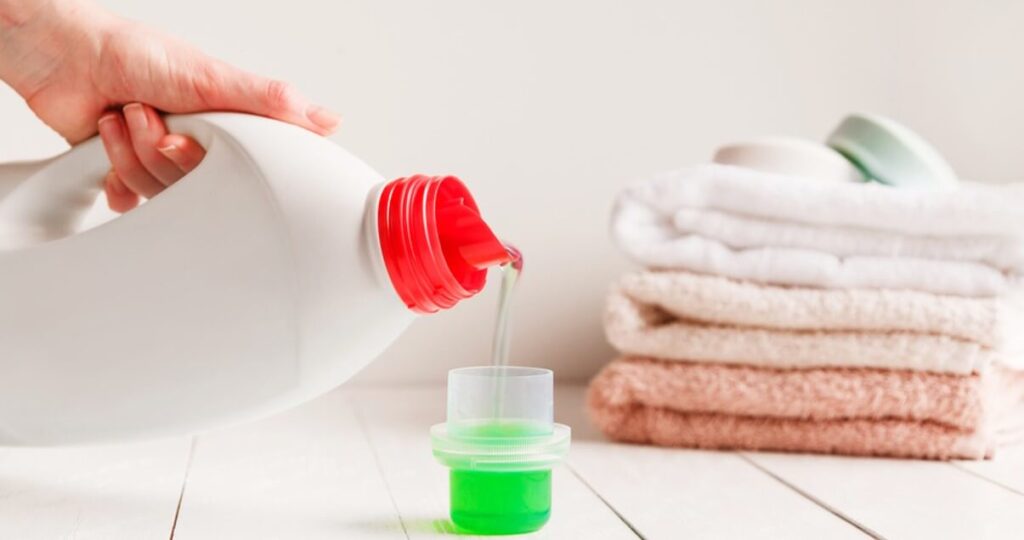The rash on your hands, face and other body parts might not be due to the new cuisine you tried recently, and it may have nothing to do with your skin-care product, either.
Your laundry detergent might be the culprit.
It is not uncommon to experience allergic reactions to laundry detergent, although most people hardly suspect their nice-smelling washing powder or liquid.
Fragrances do a good job of masking the pungent odor of harsh chemicals in most commercial laundry detergents, but that doesn’t remove the potentially harmful effects of the ingredients.
You might be allergic to one or more ingredients in your washing detergent if you develop rashes or experience uncomfortable itching after doing your laundry or wearing newly washed clothes.
Keep reading to learn more about the effects of potentially harmful chemicals in washing detergents and what you can do if you develop allergies from using them.
Laundry Detergent Allergies: What Are They?
Laundry detergent allergies refer to allergic reactions that happen when you wear newly washed clothes or after using laundry detergent. This is known as contact dermatitis ― an inflammatory skin disease characterized by itching, blistering, and redness.
But that’s not all.
A 2019 study indicates that the cells in the lungs can be affected by laundry detergents, potentially paving the way for asthma.
Allergic reactions to laundry detergent range from mild to severe. A one-time exposure to mild allergens may not trigger severe reactions. But repeated contact with the irritant can make the individual develop a skin allergy, after which brief exposure to the allergen-causing ingredient will produce an unpleasant reaction.
Besides the varying levels of symptoms severity, figuring out the cause of your symptoms can be a bit tricky. That’s because the allergy symptoms may appear within a few hours or delay for up to ten days.
The good news is that patch tests can help determine the exact cause of the symptoms.
Ingredient in Laundry Detergent That May Trigger Allergies
Many commercial laundry detergents are packed with potentially irritating constituents that can cause allergies. Allergic reaction to these ingredients is especially common in people with sensitive skin.
Surfactant is a typical example of an allergenic ingredient in laundry soap. This chemical is present in most standard washing detergents, helping to loosen dirt and grime in the soiled laundry. In a nutshell, a surfactant makes dirt removal a lot easier.
Unfortunately, harsh surfactants can cause skin irritation for people with sensitive skin, and the allergic reaction may last anywhere from a few days to several weeks.
A combination of fragrances in washing detergents can also cause skin irritations and other allergic reactions like sneezing, watery eyes, and headaches.
The tricky thing about fragrances is that consumers hardly know which specific one is in a washing product since the label “fragrance” covers a broad range of chemicals.
Other ingredients in laundry detergents that can trigger allergic reactions include:
- Enzymes, parabens, and preservatives
- Colors and dyes
- Fabric softeners, solvents, and thickeners
- Moisturizers and emulsifiers
How to Tell if You Are Allergic to Detergent

Skin irritations or rashes can happen for a number of reasons. However, allergic reactions to laundry detergent often occur when you come in contact with allergens in detergents.
Remember that irritants can also be present in newly washed clothes, so you might be allergic to something in your detergent if you notice any of the following signs or symptoms after coming in contact with freshly cleaned laundry:
- Scaly, dry, or cracking skin
- Sever or mild itching
- Bumps or blisters
- Hot or burning skin
- Swelling in the affected area
- Red skin
- Tender skin (the affected area is painful to touch)
In more severe cases, the symptoms of contact dermatitis typically include itchy, red rashes on the face or various parts of the body, including sensitive parts like the armpit and groins.
You probably have contact dermatitis if you notice an uncomfortable rash that spreads over your body but isn’t contagious.
Here’s something else to keep in mind.
You can develop an allergy even if you’ve used a detergent for quite some time. Remember that allergies can develop after several exposures to the allergenic ingredient.
Allergic Reactions to Laundry Detergent: Prevention Tips
Now that we’ve covered why you may have allergic reactions to laundry detergent, let’s see a few practical tips to help avoid triggering your allergies.
First, your best bet would be to steer clear of any ingredient that may cause adverse effects if you are allergic to laundry detergent. However, it might be challenging to determine the exact irritating ingredient in commercial detergents.
For this reason, consider buying and using only natural laundry detergents with non-toxic constituents. The EnviroKlenz Laundry Enhancer Liquid is a highly effective solution for removing dirt, odor, and chemicals from clothes. It doesn’t contain any dyes or toxic additives, so it is completely safe and gentle on the skin.
Consider using unscented laundry detergents if you experience frequent sneezes or a stuffy nose after washing or wearing newly washed clothes. Detergents containing fragrances might be irritating your airways and triggering your allergies.
It is important to ensure clean air around your home if you suspect fragrance-related allergic reactions. Installing air purifiers with medical-grade HEPA filters can help eliminate airborne allergens and other pollutants in your home environment.
Remove any buildup of chemical residues in your washing machine by washing the machine regularly with hot water.
Avoid using dryer sheets, fabric softeners, and anything that introduces synthetic chemicals in your clothing. These things can increase irritants and trigger allergic reactions.
Remember to run an extra rinse cycle to prevent a buildup of detergent residues in your clothes. Put your washing machine on the hottest setting to ensure a thorough rinse. This will kill any detergent allergens.
Want to learn more about chemical-free laundry detergents? Check out this detailed guide.
EnviroKlenz® Medical Disclaimer:
“Any information that is provided on this website is not for the use by any commercial or personal entity without expressed written consent of the blog author. The material and statements illustrated within this blog are not intended to diagnose, treat, cure, or prevent any diseases or medical conditions. Nor does the author in any way guarantee or validate the validity, totality, or efficacy of any claims and will therefore not be held responsible for the content of any claims. Always consult your medical physician for any specific medical advice or recommendations.”









